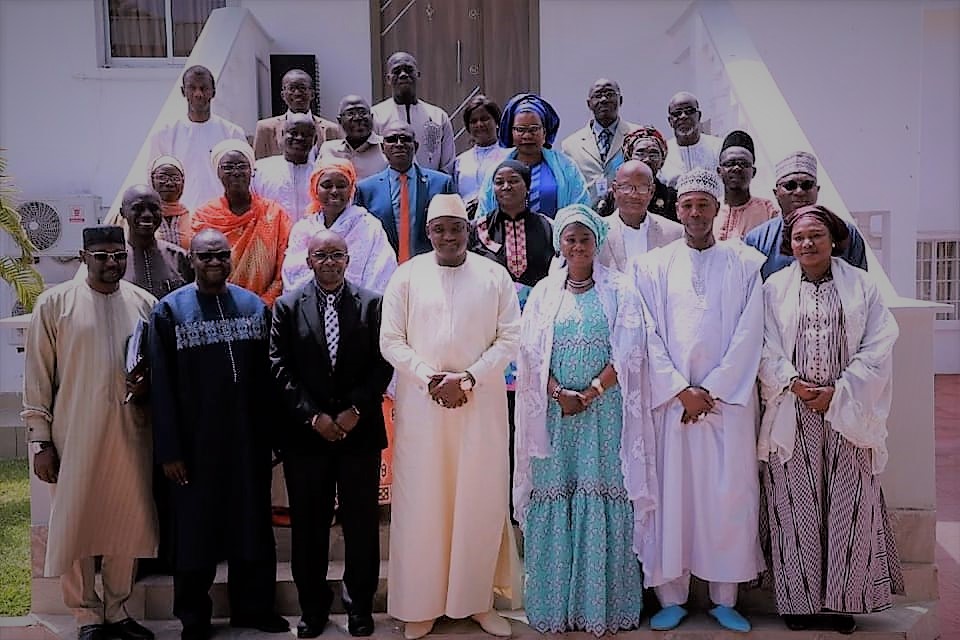
Economically and politically, the Gambia is afflicted with executive myopia as well as naked, unapologetic cruelty and managerial political incompetence. To get out of the woods, wisdom is required in the choice of men and women to run the affairs of this country. This requires a delicate blend of sundry factors, politics, expertise, gender, record of performance and age. These factors are to be embedded on a foundation of merit and integrity. To reiterate, merit must be given a pride of place in the choice of political appointees
What has played out in the recent minor cabinet reshuffle is a game of political musical chairs, with some chairs more comfortable, rewarding and instrumental towards 2021 general elections calculations than other matter of national interest.
President Adama Barrow is playing the piper while politicians are running around, jostling, clamouring for political space, elbowing each other and with their ears stretched whilst waiting for the music to stop. In this game, who sits where matters. I love this game!
In an ideal world, ministers are supposed to have relevant skills, specialised knowledge or political experience, and must be good administrators, but patronage is more important than sense in politics. In the game of politics, a ministerial position is the goal of many pseudo-intellectuals and careerists’ politicians with high ambitions. It is a way for a president to reward his team of career government cronies and captain of ignoramuses to stamp their mark on the political landscape.
Introspection, President Adama Barrow failed to heed the ever-relevant counsel of the 16th century Florentine political thinker and theorist, Niccolo Machiavelli who once noted in his classic, The Prince, that the character of any regime or administration can be discerned from the choice of cabinet ministers. In his words, “The choice of ministers is a matter of no small moment to a Prince. Whether they shall be good or not depends on his prudence, so that the readiest conjecture we can form of the character and sagacity of a Prince is from seeing what sort of men he has about him. When they are at once capable and faithful, we may always account him wise, since he has known to recognise their merit and to retain their fidelity. But if they be, otherwise, we must pronounce unfavourably of him, since he has committed a first fault in making his selection.”
Again, the Machiavelli’s bell is tolling, and the President Adama Barrow must take heed, if he intends by any dint of imagination to leave behind an enduring legacy in the governance of the Gambia. The constitution is there as a guide, the complexity of the country is there as a compass and wisdom, a divine grace is hovering around to be tapped.
Whereas the constitution envisages equity and inclusivity, in practice, the complexity of the country and the corresponding sensibilities of its people require a delicate balancing of interests in ways that no one will be left out of the scheme of things.
There should be no doubt about this truth to power: the security architecture of the Gambia currently skewed and should reflect the security and stability new Gambia of this count. Security sector reform is untenable without a fundamental change in the sociopolitical circumstances of the country.
Therefore, security sector intervention must be realistic and sequential. The Gambia, the first step should be security stabilisation, which entails reducing violence, minimising lawlessness, and enhancing public security and safety to all Gambians.
No President cannot do the job alone. Governance is teamwork. The Constitution gives the President the latitude to choose his own team. The Gambian Constitution practically makes the Gambian President a monarch with the powers to hire and fire, exercising near-divine powers that in many ways compromise democracy. This is one of the reasons why a return to Westminster-type parliamentary rule may well in the long run be the best option for the Gambia.

For now, it seems clear that the people who surround President Adama Barrow, the people who work with him or for him, can make all the difference when he is in power and office and when the bubble eventually bursts and he is out of the impregnable fortress of State House.
This has elicited mixed reactions. There are persons who believe that Omar Faye and Yankuba Sonko, their security astuteness (romancing the powers-that-be), including even going to the mosque with the President, and pretending to know the Muslim way of worship and interacting with neighbours in an Islamic manner. There are also those who argue that both Omar Faye and Yankuba Sonko deserves their re-appointment because they have been major pillars of stability in managing the Gambia’s security crisis, combining security policy responsibilities with other things as men of discipline and talent that should ordinarily be another people’s responsibility.
Why can’t President Adama Barrow separate the conjoined offices of Attorney General and Minister of Justice? For a country of almost 2 million people, what is the sense in doing the same thing, while expecting a different result? Why are our leaders manipulating our destinies with this endemic and profound lack of thought? Given all the turmoil on ground, it would have been better to have the Attorney General responsible for providing legal advice to the executive branch of government and representing the government in all legal proceedings.
The Attorney General should be able to act in a completely independently manner in the public interest, and without being partisan or acting as private lawyer to the president. The Attorney General ought to be the “Defender of the Rule of Law”. We need a Justice minister who is put in charge of constitutional reforms, electoral reforms, prisons reforms and the extension of civil rights and social justice. Abubacarr Baa Tambadou would have been good for such a role. Why Gambian always copy America verbatim? America has already settled the key issues of nationhood. It only needs amendments and Supreme Court clarifications. The Gambia has not resolved the issues of its nationalities. The Gambia still remains a dysfunctional and uncompetitive state.
Few things can be more amusing and reinforcing than the bizarre creation of a Defence Minister, the Vice President is delegated according to the Constitution section 78 sub section 2 as the de facto Chairperson of the National Security Council And its reads:”The National Security Council shall be responsible for advising the President on all matters relating to the security of the Gambia and the integration of domestic and foreign policies relating to its security, and under the direction of the President, shall take appropriate measures to safeguard the internal and external security of the Gambia and to provide for the cooperation of the departments and agencies of the Government in that regard”. Ignore the irony at our peril. This is a clever throwback to the colonial era of ministers without portfolios. It brings back the words of Karl Marx in his book, The Eighteenth Brumaire of Louis Napoleon Bonaparte, “And so it is that we must look at history, men and women are placed within contexts and in situations they will neither have asked for nor wanted, and they have only a limited amount of time upon which to impart their own exigencies. In the meantime, the traditions, the mores of the generations dead, they weigh like a nightmare upon the souls of the living“.
In the same vein, the absurdity of the president maintaining the portfolio of Attorney General and Justice Minister takes us back. Where is the doctrine of separation of powers? Previous governments started this vainglorious nonsense appointing the Attorney General as Justice Minister. Isn’t it time to discard it?
Key for the Adama Barrow second term bid term ambition and its calculus appointment of ministers serves rather than of a strategic, capital votes laden for security and stability, or getting crowned as Czars. This is a loaf save from going into the political cooler, but it isn’t half a bread for Adama Barrow. Kindly make of this what you will.
If Barrow had any intent of running a serious process, the much-needed public sector and reform targets would have been attached to the musical chairs appointment portfolios of cabinet minister. President Barrow, with his characteristic insolence, has retained an ill-suited Attorney General and an out-of-depth cabinet minister.
For the precarious situation that the Gambia is in, a developmental orientation laced with managerial savvy is what is needed to pull the fiscal levers. A look at the Finance Ministry and the Central Bank headed by a duplicitous opportunist, signals more of the same – economic rudderlessness. In view of the turbulence in the world’s economy, with countries like Brazil slipping into or attempting to avoid recession, the characteristic “I don’t give a Damn” attitude is writ large. A pathetic reminder of his underachievement. Gambians should fasten their seat belts.
This is 21st Century, which doesn’t waste time in leaving procrastinators and mediocrities behind. There should therefore be no time to consider demagogues, sycophants, lickspittles and party loyalty above over-riding public interest. The nation is waiting for the president’s men who will take the country to the much led about ‘next level’.
By Alagi Yorro Jallow











Recent Comments